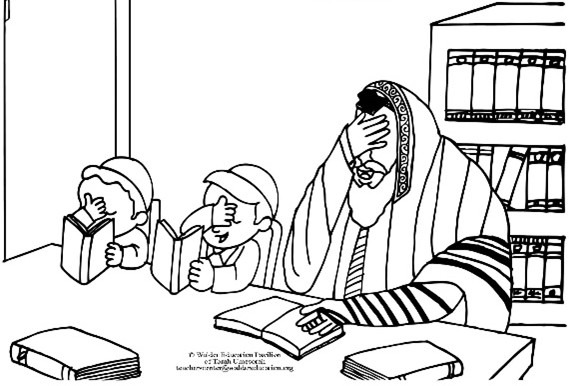Parshas Vayera
No Prayer Is Left Unanswered!
“Hashem said, ‘Shall I conceal from Avraham what I am about to do’”? (Berieshis 18:17)
There is a small shul in Tel Aviv. It was time for Mincha and they needed a tenth man for the minyan. One of the men inside the shul went out to the street to look for a tenth man. At first, he could not find anyone. Soon, a young secular Israeli walked by. He was asked to please come inside to help make the minyan. He replied that he was not interested. The man from the shul pleaded with him, saying that someone had a Yahrtzeit and needed to say Kaddish. The fellow still was not interested. Finally, he pestered the fellow so much that he agreed to come in. The fellow went in and was totally unfamiliar with what was taking place inside. He just stood there, for the entire davening. This was the first time in his life that he ever entered a shul. Apparently, being in a shul for the first time in his life made an impression on him. One thing led to another. He contacted Lev L’Achim workers. Now this young man is an observant Jew.
However, this is not the whole story. This boy’s parents are totally secular Jews. Their son went “off the path” and became Chareidi [“ultra-Orthodox”]. His former friends came to his parents and asked them “What happened? You raised your son well. How could this have happened?” The father said, “Well, I know exactly what happened. This boy’s grandfather, my own father, was a religious Jew. I wanted to have nothing to do with Judaism. When my father saw me go “off the derech” and saw my son being raised as a secular Israeli he must have davened so many tefillos asking Hashem to bring us back. He davened and davened and davened. His tefillos did not seem to help. I remained estranged from Judaism. However, his tefillos helped my son, his grandson. Interestingly, my father davened in this very shul in Tel Aviv that pulled my son in for the minyan.”
When Hashem decided to destroy Sodom and Amora, He initially withheld this information from Avraham. Subsequently, “Hashem said, ‘Shall I hide from Avraham that which I am doing? … For I have loved him” [Bereishis 18:17-19].
What was the purpose of informing Avraham about the plans to destroy Sodom and Amora? Hashem knew that Avraham would daven and negotiate for the salvation of Sodom. Hashem knew ahead of time that there were not even 10 righteous people in Sodom worthy of being saved. Hashem knew that eventually the city would be destroyed. So, what was gained by giving Avraham this information? Wouldn’t Avraham’s prayers be nothing more than an exercise in futility?
- Avraham Aharon Yudelvitz, theBaisAv, explains that informing Avraham was a favor to him. When one davens for another person, whether his prayers seem to be answered, he becomes a better person through those prayers. Hashem wanted to offer Avraham the kindness of having an opportunity to empathize with his fellow man, to think about the impending tragedy of Sodom, and to at least attempt to stave off the tragedy. When someone puts himself out for others, he becomes better from that effort.
Another answer is that no Tefillah [prayer] ever goes to waste! The prayers that Avraham Avinu offered for Sodom may not have helped the people of Sodom because they did not deserve it. Instead, Hashem saved those prayers to help Avraham’s descendants.
This is the underlying message of the sequence of psukim: “Am I going to hide from Avraham that which I am going to do? [Bereishis 18:17] For Avraham is going to become a great and mighty nation. [ibid. 18:18] What does pasuk 18 have to do with pasuk 17? What does the fact that Avraham will, in the future, become a great and mighty nation have to do with anything? The answer is that Hashem is saying that I am not going to hide from Avraham what I am about to do. I know that Avraham is going to daven, and I know that his prayers are not going to help Sodom. However, a great and mighty nation will descend from Avraham. I know that this nation is going to need those prayers at various times in the future. Let Avraham verbalize those prayers now for the welfare of his future descendants.
(Based on shiuim by Rabbi Yissocher Frand on Torah.org)
We can daven to Hashem anytime that we want. Heartfelt tefillah can even change a Heavenly decree that has already been made against an individual or Klal Yisrael. Hashem always listens to our prayers. That does not mean that Hashem always gives us the answer that we want. Sometimes the answer to our prayer is NO! Even though we may want something, Hashem knows what is truly best. Hashem knows if it is truly good for us. However, our prayers are NEVER wasted! Hashem always saves our prayers for a time when they will be needed to help us, our descendants, or Klal Yisroel as a whole.



